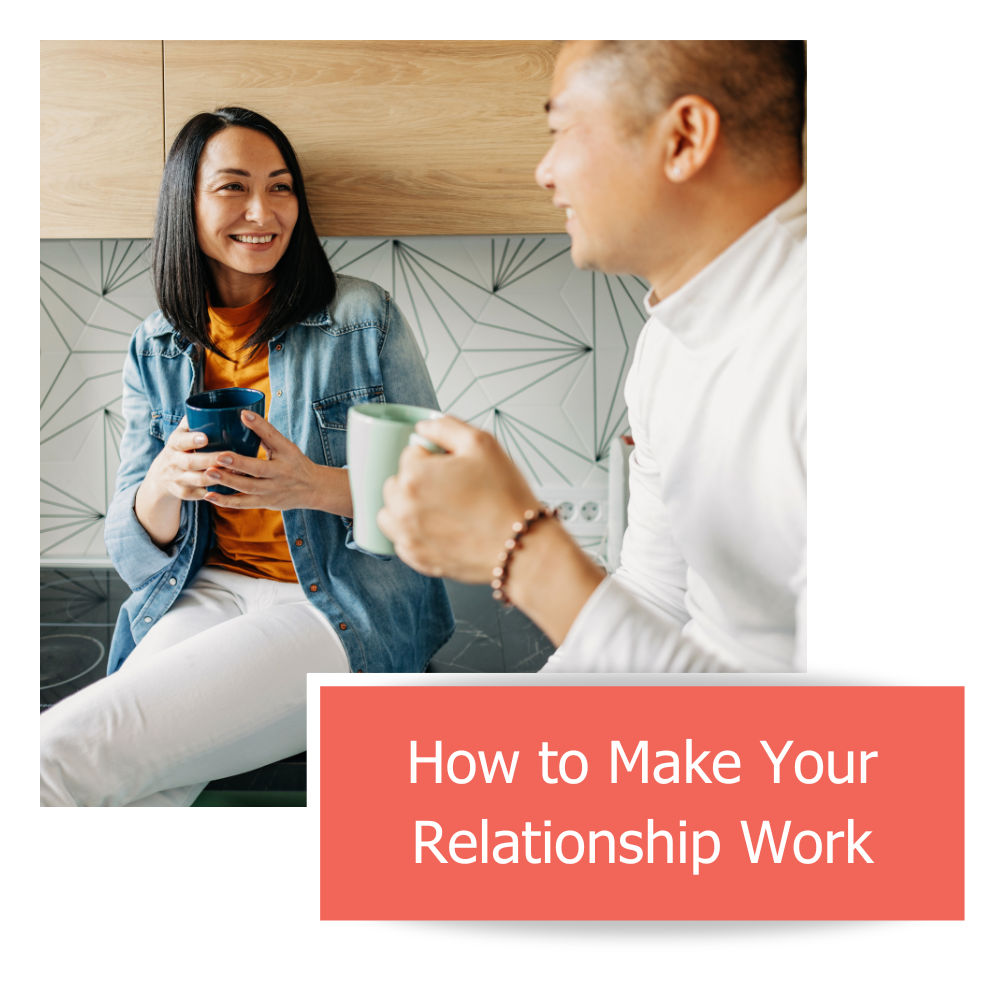Picture yourself planning to go out to dinner with your partner. Maybe it’s even a special occasion. And you want to go to your favorite restaurant, and you know exactly what you want to order.
But your partner doesn’t like that restaurant as much as you do. They want to go somewhere else—somewhere cheaper and less romantic and not as good, in your opinion, and you don’t want to go there. But instead of talking it out and compromising—maybe deciding on another place where you can both get something you want and still have a good time together—you end up fighting over it. And not in a good way, either. There are insults and hurt feelings, nothing changes, and you don’t have dinner together.
What was supposed to be a nice, romantic evening turns into a bitter fight. And it’s really a bitter fight over nothing.
This is a common occurrence in relationships. In reality, fights about the TV remote or what to eat for dinner that are about nothing specific. In an interview with Anderson Cooper, John Gottman reveals that the number one thing that couples fight about is exactly that: nothing.
How can you know you’re in a happy relationship that’s both good for your health and everyone around you? Can such a thing be measured? It can! Take this free Gottman relationship quiz and find out.
Meaningless Fights Can Make or Break Trust
Rarely do couples ever sit down, create an agenda, and argue over a specific topic such as finances. Sometimes they do, but typically they hurt each other’s feelings in seemingly meaningless moments that appear to be about absolutely nothing.
What matters is not the fight itself, and especially not what it is about. What matters is how partners respond to negative emotions in the relationship. If couples see the conflict as an opportunity for growth, they can attune to each other and increase their understanding of one another, which deepens their trust in each other and in the relationship.
If partners dismiss the negative emotions in these situations, they may eventually reconnect with one another, but trust will erode a little. Over time, small and meaningless incidents will compound until partners are left feeling hurt, sad, and alone.
Instead of reaching out for your partner’s hand, you begin pointing fingers and crossing arms. Instead of talking it out in a calm manner, even if you disagree, you hurt each other, and the trust and connection between you begin to erode.
Why Relationships Fail
Negative events will always happen in relationships, and couples will always fight, but that isn’t what drives couples to separate. Relationships fail when the Story of Us—a couple’s history, shared beliefs, and overall attitude toward their relationship—is focused on the problems partners create, not the love partners offer, and the overall attitude becomes negative.
What couples need to buffer against that kind of negativity is a “positive perspective” on the relationship. You need to remind yourself of the good things you share in your relationship, how much you admire and appreciate your partner, and how much you accept and understand their flaws despite whatever conflicts arise from them.
However, if you have a negative perspective, you slowly disconnect, sometimes without even realizing it.
If you constantly think about how negative your relationship makes you feel, then you might start to see our partner as selfish. You might stop believing that your partner has your best interests at heart. Your potential for disconnection and betrayal increases over time.
The good feelings you once had might be replaced with loneliness, frustration, and anger. Each small, negative incident—those fights over nothing—only increases the potential for betrayal or breakup.
There is a point in relationships when negativity takes over and dominates all positive stories, memories, and feelings. This is the “negative perspective,” or, in scientific terms derived from our research, “negative sentiment override.” Even if your partner does something nice for you, you still might think that they’re really selfish, that they don’t have your best interests at heart, and that the relationship is simply bad and always has been.
Negative sentiment override causes partners to forget the good memories, or to simply dismiss them as an aberrance in a negative relationship. When couples entered the Love Lab and told their “Story of Us,” those couples who had a positive perspective on their history together, despite the hard times (which we call “glorifying the struggle“), had a much better chance of staying together. But those couples who were firmly in the negative were destined for separation or divorce—or staying in the relationship anyway but leading disconnected, parallel lives.
Fights Are Inevitable in Relationships
Regrettable incidents like fights, arguments, and interactions that are primarily negative will happen in all relationships. According to our research, both partners in a relationship are emotionally available only 9% of the time. This leaves 91% of our relational interactions ripe for miscommunication.
While many see conflict in a relationship as a sign of incompatibility, it should be seen as a sign that the relationship needs growth and understanding. Conflict is really an opportunity to learn more about your partner. So, when it feels like you’re fighting about nothing and it goes nowhere, there’s likely a lack of understanding. Perhaps you need to discuss how to compromise and share decision-making, or how to recognize and realize deeper life dreams, or how to address core needs that aren’t being met. The fight itself—like arguing about where to have dinner—is about nothing.
But usually, underneath that fight, is an unfulfilled dream.
When those negative incidents happen, that feeling of disconnection from your partner can be used to find new ways of communicating and understanding each other’s perspective, and of understanding those dreams that you each have. For example, a lack of sex or intimacy in your relationship can spur a conversation—not a fight—about how your partner doesn’t feel like you’re both on the same team. (As our research suggests, men who do chores have more sex—not because doing chores is erotic, but because it is an act of solidarity with your partner.) That level of understanding of both yourself and your partner can teach you how to embody your deepest desires and how to truly want your partner and how to experience deeper intimacy and connection through sex.
Typical conflicts are merely a reminder that a relationship is two different people working together to understand differences and love each other despite flaws. And the reason why all couples fight is that we’re all a bit different from each other—personalities, needs, likes, dislikes, preferences, life dreams—and many of those differences (69%, to be precise) cannot be resolved.
So, we fight. But that’s okay, because the trick is to learn how to fight in a way that doesn’t cause harm and that increases understanding.
What Makes Love Last?
When conflict occurs in a relationship, partners need to come together to understand each other better. Often times, that means taking a step back and saying something like, “What do you really need from me?” or “What does this mean to you? Tell me more.” It also means that, before you think of a response, or before you want to dismiss something your partner says that you disagree with, you need to really listen to your partner so that you can understand their perspective.
Trust is built when there’s a positive perspective—that, despite the flaws, disagreements, and differences, it’s a good relationship and that each partner is there for each other. Those fights about nothing won’t happen as often when partners can really open up about their needs, concerns, and dreams. They know that they can work through it, even if negative interactions happen here and there. And for that to happen, couples need to intentionally try to understand each other’s perspectives. When understanding happens regularly, connection is built and a positive perspective blossoms.
And when someone gets hurt in the middle of a fight when there’s a positive perspective in the relationship, it becomes easier to understand that negativity or hurt may not be malicious or intentional, but a byproduct of stress or frustration, perhaps even from outside the relationship. Partners are willing to give each other the benefit of the doubt, and they know that they can transform a negative interaction into an opportunity for understanding. Because they trust each other, they can repair the incident and reconnect with one another.
When a positive perspective takes over, those fights about nothing will diminish, and they will become opportunities for increased understanding and connection. We think that’s a pretty good reason to learn how to fight smarter.
For an in-depth analysis of your relationship health check out the Gottman Relationship Adviser, a virtual relationship evaluation and self-improvement tool for couples, providing a self-assessment, a full snapshot of your relationship satisfaction. It outlines your strengths and weaknesses, and supplies tailored recommendations for improvement.
Start building a happier relationship today!








